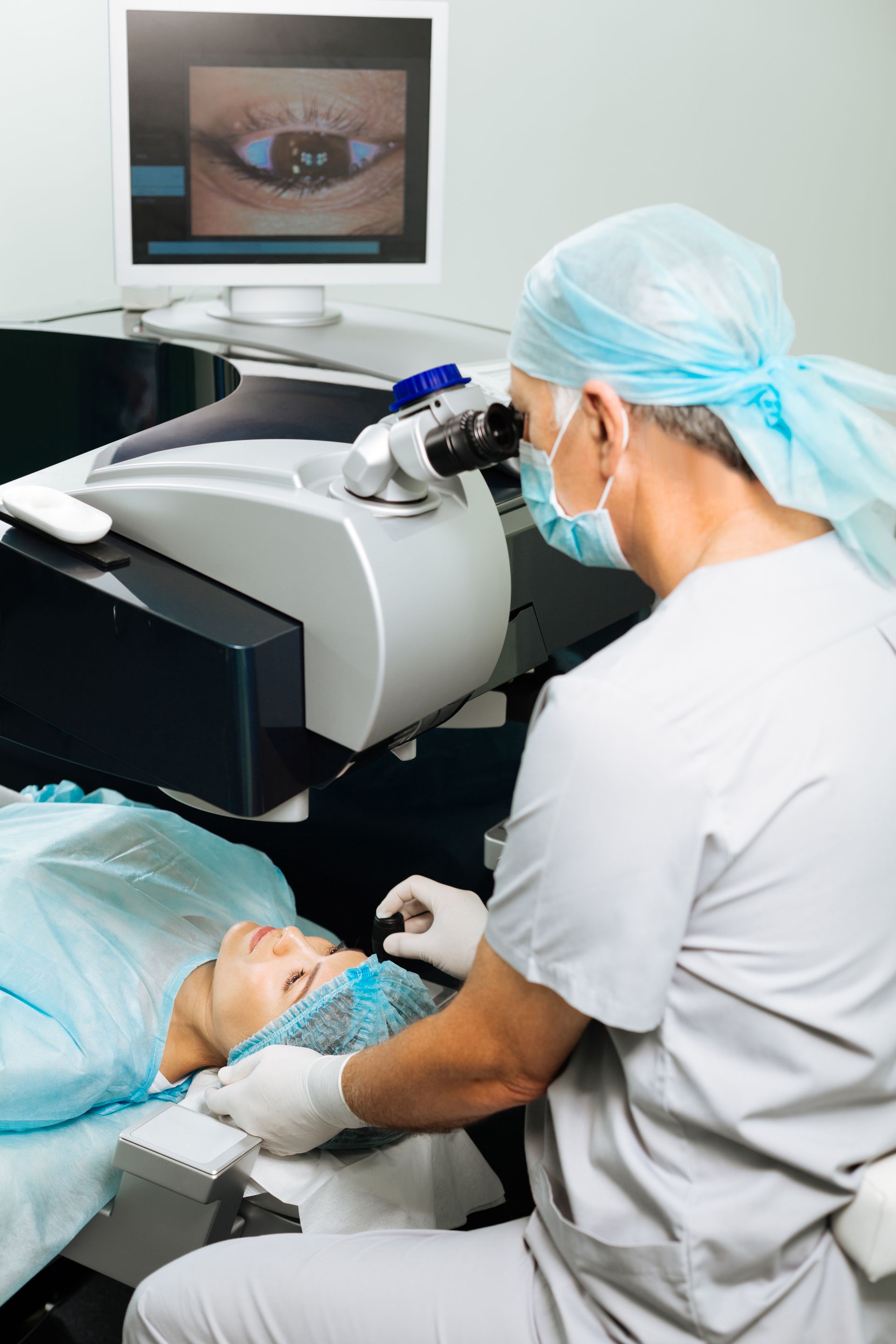Is Laser Eye Surgery Right for Me?
Laser eye surgery, am I eligible and what's new?
What is Laser Eye Surgery?
Laser eye surgery, also known as refractive surgery, has revolutionized vision correction, offering freedom from glasses and contact lenses. The most common procedures, LASIK (Laser-Assisted In Situ Keratomileusis) and PRK (Photorefractive Keratectomy), have helped millions achieve clearer vision. Generally only taking a couple of minutes to perform, it's no wonder why it's so popular!
Eligibility
Not everyone is a suitable candidate for laser eye surgery. Eligibility is determined by a comprehensive eye exam detailed scans measuring the thickness and elevation of the cornea. Key factors include:
- Age: Candidates should generally be at least 18 years old, as vision typically stabilizes in early adulthood.
- Stable Vision: It’s crucial that a person's prescription has been stable for at least one year before surgery. Significant changes in vision can affect the long-term success of the procedure.
- Corneal Thickness: The thickness of the cornea is a critical factor, especially for LASIK. A thin cornea may increase the risk of complications, making PRK a better alternative for some.
- Eye Health: Conditions like keratoconus, severe dry eye, or certain autoimmune disorders may disqualify someone from undergoing laser eye surgery. Additionally, those with cataracts or glaucoma need to address these conditions before considering refractive surgery.
- General Health: Certain systemic conditions, like uncontrolled diabetes or autoimmune diseases, may also affect eligibility.

Laser eye surgery taking place!
New Techniques in Laser Eye Surgery
Laser eye surgery has evolved significantly, with new techniques enhancing safety, precision, and outcomes. Some of the latest advancements include:
1) SMILE (Small Incision Lenticule Extraction): SMILE is a minimally invasive procedure that involves creating a small incision in the cornea and removing a tiny piece of tissue to correct vision. This technique has been shown to result in faster recovery and less postoperative dry eye compared to LASIK. However, it has a smaller range of acceptable prescriptions which can be corrected. Smile can generally correct up to -10D of short-sightedness and 3D of astigmatism.
2) Topography and Wavefront-Guided LASIK: This advanced form of LASIK uses detailed maps of the cornea’s surface to customize the treatment and reduce halos and glare. By addressing even the smallest imperfections in the cornea, topography-guided LASIK can provide better visual outcomes, particularly for patients with irregular corneas. LASIK can generally correct up to -10D of short-sightedness, 4D of far-sightedness and 5D of astigmatism.
3) If your prescription is out of range for LASIK or SMILE, ICL surgery, or Implantable Collamer Lens surgery is a great solution. While not necessarily new, not everyone would know that it exists. Unlike LASIK or SMILE, which reshape the cornea, ICL surgery involves implanting a specialized lens inside the eye to correct vision. This soft lens slips over the natural lens in the eye, rather than altering the cornea in any way or replacing the natural lens (ie. cataract surgery). One great feature of ICL is that it is reversible - the lens can be removed at any time if need be!
What We Do at Monocle
Once we've assessed your eyes, we can give guidance based on your prescription, eye health and corneal thickness. If we think you might be eligible for refractive surgery, we are more than happy to refer you to a great surgeon for additional measurements and to have a good chat about options!



